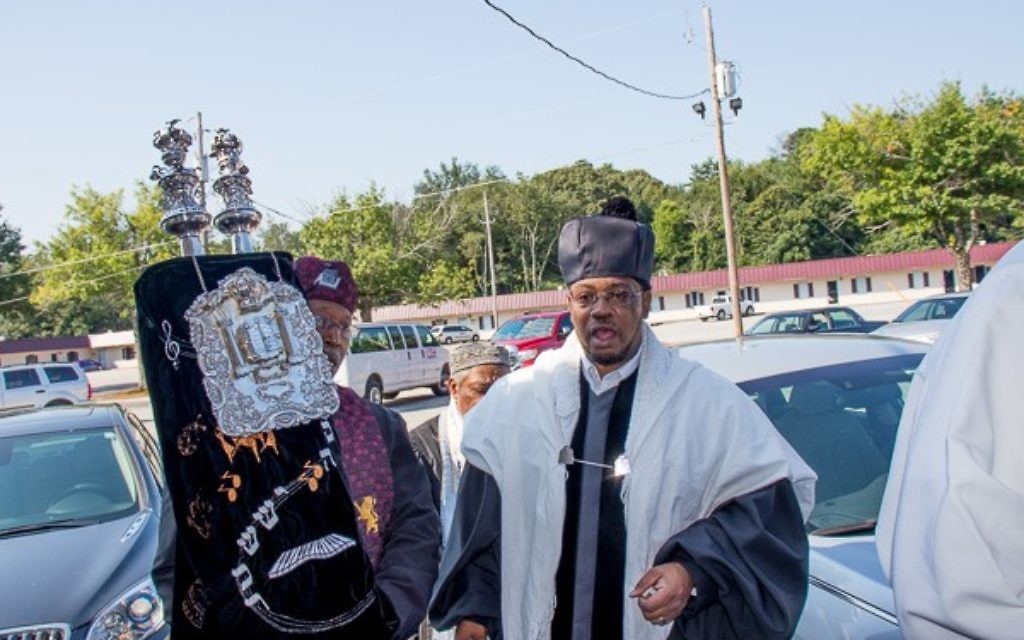Feeling the Israelite Passion
The combination of African-American and Jewish spirituality is a powerful addition to the community.

Atlanta has hosted several major Jewish gatherings this year and has at least one more to come in December with the United Synagogue of Conservative Judaism biennial. But a smaller, still significant conference almost escaped this newspaper’s notice.
The International Israelite Board of Rabbis held its national conference in College Park from Friday to Sunday, Aug. 4 to 6, splitting time between a hotel near the airport and Congregation Or-Ami, a shul in an office park full of tiny houses of worship.
If you’re not familiar with the Israelite Board of Rabbis or Or-Ami, it’s probably because, like me, you have a tough time thinking outside the box of a binary, Ashkenazi-Sephardi Jewish world. But I learned about the conference and the College Park congregation under newly installed Rabbi Shalem Jeshurun and had one of the most spiritual Shabbat experiences of my life.
Get The AJT Newsletter by email and never miss our top stories Free Sign Up
The Israelite Board of Rabbis is one of the national organizations of what are variously called Black Jews, Hebrew Israelites or just Israelites. Their modern roots go back to the 1890s — seven generations, they said during the Shabbat morning service — but their belief is that they merely have rediscovered their ancient Jewish roots.
Deuteronomy 28, part of Ki Tavo, which we’ll read Sept. 9, holds the key verses seen as prophesying the exile of Jews from Israel to Africa, to be scattered across the world as slaves. For example: “The Lord shall bring thee back into Egypt in ships … and there ye shall sell yourselves unto your enemies for bondmen and for bondwomen.”
Israelite Chief Rabbi Capers Shmuel Funnye from Chicago invited me to attend the Saturday service at Or-Ami to worship and to learn.
It’s important to understand that it was a Jewish service. It was different from my Conservative upbringing or my Reform experience now, but the same could be said of a Sephardic service at Congregation Or VeShalom or a Bukharian service at Congregation Beit Yitzchak. I can’t say someone from Congregation Beth Jacob or Congregation Beth Tefillah would have found Or-Ami stranger than, say, Temple Sinai.
The men and women sat separately, though without a mechitzah. The Hebrew content was roughly equivalent to a Conservative service, but the comprehension was much higher.
The one significant difference was the ruach (spirit). I can’t explain the uplifting, overwhelming feeling as we mixed ancient prayers and Psalms with Jewish-flavored American spirituals, all supported by drums, tambourines and other instruments.
The divine filled that sanctuary.

Perhaps you are skeptical that the Israelites are Jews who were lost for 2,000 years. Rabbi Funnye said a Chabad rabbi urged him, as chief rabbi, to call for all the Israelites to go through an Orthodox conversion, just to be put any questions to rest.
Rabbi Funnye scoffed at the idea. If the Israelites were called by G-d to return to their roots, what place does a beit din have to intervene?
The Israelites do not, like some Black Jewish groups, deny the legitimacy of Ashkenazim and Sephardim, but Rabbi Funnye also sees no reason to grant them higher authority.
“We are one,” he said several times, united in love of Torah and Israel, striving to repair the world, and looking out for one another, as in the case of the Ugandan Jews who get a single meal a day because of a devastating drought across Africa. (One way to help is by donating through Be’chol Lashon at www.tinyURL.com/UgandaRelief.)
The worshippers at Or-Ami, some of whom are members at other Atlanta synagogues, made it clear they welcome all of us into their “we.” Shouldn’t we do the same?
After all, we’re all children of Israel, even if we took different routes to Atlanta.




comments